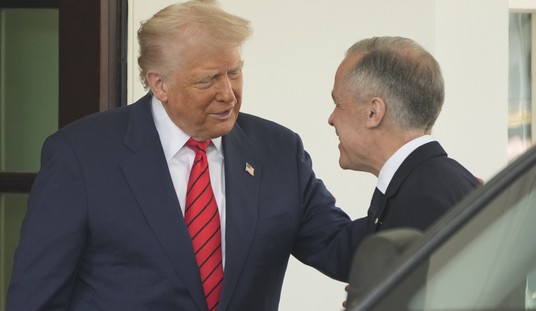We’ve known for some time that far too many state and municipal government actors are in bed with the taxi companies (and their unions) because of generous donations made to political campaigns. This has led to all manner of mischief, including laws making it virtually impossible for ride sharing competitors such as Uber and Lyft to even get off the ground. (We already saw this play out in Austin.) But rarely have we seen such a blatant thumb on the scale as the one now unfolding in the Bay State. Massachusetts has approved a new tax to be levied on ride share customers with part of the money to be given directly to the cab companies. David Ingram at Business Insider has the details.
Massachusetts is preparing to levy a 5-cent fee per trip on ride-hailing apps such as Uber and Lyft and spend the money on the traditional taxi industry, a subsidy that appears to be the first of its kind in the United States.
Republican Governor Charlie Baker signed the nickel fee into law this month as part of a sweeping package of regulations for the industry.
Ride services are not enthusiastic about the fee.
“I don’t think we should be in the business of subsidizing potential competitors,” said Kirill Evdakov, the chief executive of Fasten, a ride service that launched in Boston last year and also operates in Austin, Texas.
If this sounds like a sneaky maneuver, it gets even worse. At The American Interest they report on another detail of the law which is intentionally designed to obscure the process from the public and tamp down dissent. (Emphasis added)
This benefits the taxi industry and no one else. Moreover, riders won’t even know the fee is being assessed because the law doesn’t allow Uber and Lyft to show it on the invoice—a sneaky way to keep the political backlash to a minimum.
Governor Charlie Baker may be a Republican but apparently he skipped class on the day they covered conservatism and the idea of the government picking winners and losers. The entire idea behind capitalism is that competition makes for better products and services at lower costs to the consumer. When the government is the provider of some service (such as the Metro) then you expect tax dollars to be going into the pool, but taxi companies are private businesses which are supposed to be subject to competition just like anyone else. The fact that they are considered part of the “infrastructure” of transportation is coincidental in the context of this discussion. They are still private companies.
What makes this toxic stew even worse is that the state hasn’t even worked out how it plans to distribute this windfall to their supporters in the taxi unions. That’s going to be worked out later.
The law says the money will help taxi businesses to adopt “new technologies and advanced service, safety and operational capabilities” and to support workforce development.
Regulations for how the fee will be collected and a plan for how it will be spent still need to be drawn up, said Mark Sternman, a spokesman for the state’s MassDevelopment agency, which will be in charge of the money.
Yes, you read that correctly. They’ve already put the law on the books and are preparing to begin charging riders the tax, but there is no plan available to the taxpayers detailing who in the taxi industry will get the money and how it will be distributed. If that’s not a formula for corruption and waste in the making I’ve never seen one.
This just sounds like it has to be unconstitutional in some fashion. How can the state government collect fees with the stated purpose of handing them out to the owners of businesses in only one part of a competitive industry? This needs to be challenged in court promptly and it should be struck down. If the cab companies want to earn back their customers they need to provide better services at competitive prices, not enlist their political allies to use the power of the legislature to squash their competition.









Join the conversation as a VIP Member